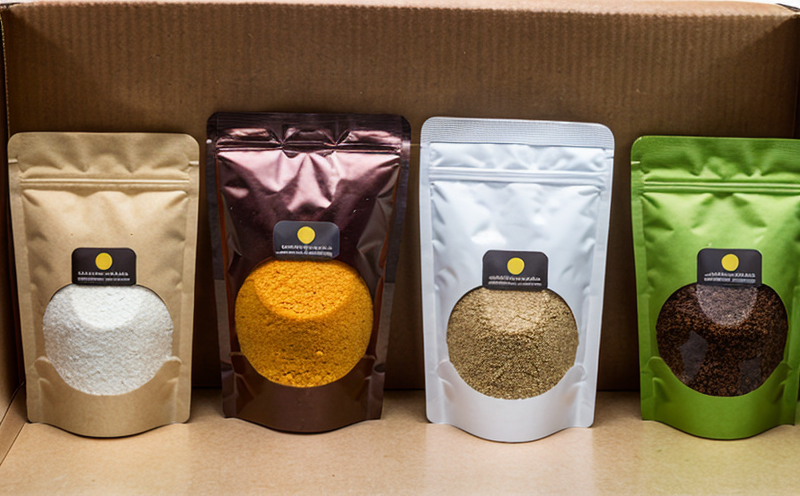Oven Compatibility Testing of Food Contact Materials
The safety and integrity of food contact materials (FCMs) are paramount in ensuring consumer health and compliance with regulatory standards. Oven compatibility testing is a critical aspect of FCM evaluation, aimed at assessing the stability and non-leaching properties of these materials during typical kitchen conditions. This service ensures that food items remain safe for consumption even after being in contact with the FCMs stored or prepared in an oven.
The process involves subjecting FCM samples to various temperature and time cycles simulating real-world use scenarios. The goal is to identify any potential leaching, migration, or chemical changes that could compromise food safety. Regulatory bodies such as the FDA (Food and Drug Administration) and international standards like ISO 10350-2:2016 set specific guidelines for oven compatibility testing.
During this testing, FCM specimens are placed in a controlled environment where they undergo specified temperature cycles that mimic typical domestic ovens. The chosen conditions reflect the maximum operating temperatures of common kitchen appliances to ensure that any potential issues arise under realistic circumstances. Specimens may include plastic containers, paperboard packaging, and metal foils used for food storage or preparation.
The testing protocol involves rigorous sample preparation, including washing, drying, and conditioning according to ISO standards. Specimens are then placed in an oven set at high temperatures (up to 200°C) for extended periods, often over multiple cycles. After each cycle, the specimens are analyzed for physical integrity and chemical stability.
Key parameters measured include:
- Physical changes such as cracking or warping
- Chemical migration of additives into simulants (e.g., water, ethanol)
- Changes in color, texture, or smell of the FCMs
- Leaching of metal ions or other potentially harmful substances
The results from oven compatibility testing provide critical insights for quality managers and R&D engineers. They help in refining design specifications to ensure that FCMs meet stringent safety requirements without compromising on performance or cost.
| Oven Temperature (°C) | Cycle Duration (hours) | Number of Cycles |
|---|---|---|
| 120°C | 3 hours | 5 cycles |
| 180°C | 6 hours | 4 cycles |
| 200°C | 9 hours | 3 cycles |
The findings from this testing are essential for compliance officers to ensure that products meet both national and international standards. For instance, the FDA requires FCMs to be safe under all conditions of manufacture, packaging, distribution, installation, and use.
R&D engineers can leverage these test results to innovate and improve product designs. By understanding how materials behave in ovens, they can develop safer, more durable products that enhance consumer trust and satisfaction.
Industry Applications
- Packaging companies developing new food containers
- Manufacturers producing cookware for domestic use
- Sterilization process optimization in medical device manufacturing
- R&D teams innovating sustainable packaging solutions
| Oven Temperature (°C) | Cycle Duration (hours) | Number of Cycles |
|---|---|---|
| 120°C | 3 hours | 5 cycles |
| 180°C | 6 hours | 4 cycles |
| 200°C | 9 hours | 3 cycles |
Customer Impact and Satisfaction
- Enhanced trust in product safety
- Increased consumer satisfaction with products that meet high standards
- Promotion of sustainable packaging solutions
- Optimization of sterilization processes for medical devices
The ability to offer oven compatibility testing is a significant advantage for companies operating within the consumer product and food contact material sectors. This service ensures regulatory compliance while also enhancing brand reputation through consistent quality assurance.
Environmental and Sustainability Contributions
Oven compatibility testing plays a crucial role in promoting sustainability by ensuring that FCMs are safe for use in domestic ovens without compromising on environmental impact. This service supports the development of recyclable, biodegradable packaging materials that contribute positively to environmental protection.
By integrating oven compatibility testing into their product development and quality control processes, companies can demonstrate a commitment to both safety and sustainability, thereby enhancing their market position and customer loyalty.





